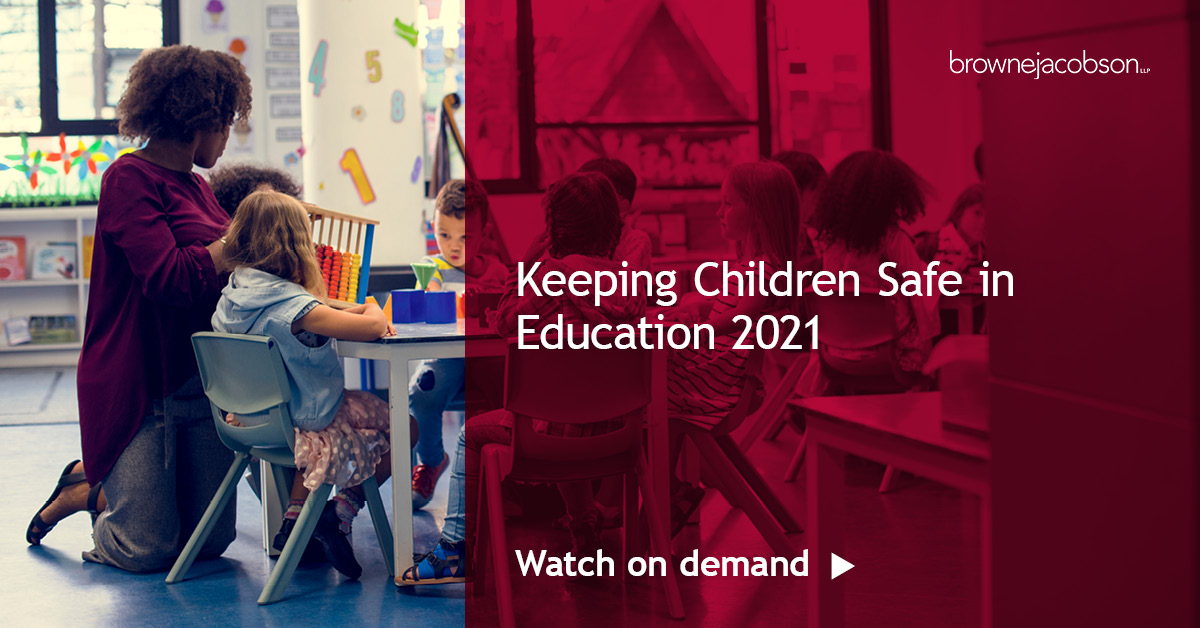Keeping Children Safe in Education 2021
The Keeping Children Safe in Education 2021 guidance includes a number of updates, the most significant of which is the creation of Section Two of Part Five. This introduces the concept of low-level concerns raised about staff, supply staff, volunteers and contractors.
This event took place on 04 October 2021 and is now available on-demand. The content in this recording was correct as of the original event date.
The Keeping Children Safe in Education 2021 guidance includes a number of updates, the most significant of which is the creation of Section Two of Part Five. This introduces the concept of low-level concerns raised about staff, supply staff, volunteers and contractors.
We know schools and trusts are still getting to grips with how to implement this new section, so in this webinar our safeguarding, HR and employment experts explain:
- what low level concerns look like
- how staff should report them
- how head teachers should manage them
- how they should be recorded
- when they should be escalated
This on-demand webinar is suitable for senior leaders, safeguarding leads and HR and safeguarding professionals working in schools or trusts.
As a result of watching this webinar delegates will:
- understand how to manage low level concerns
- know how to update staff to ensure they understand their role in reporting low level concerns
- be clear on how to record low level concerns
- be confident in how to investigate the concern and address with the individual
Speakers

Dai Durbridge
Partner
Dai Durbridge specialises in advising schools, academies and other education providers on all pastoral matters, including admissions, exclusions, managing allegations against staff and all safeguarding matters, with a specific interest in vetting and barring. He is a recognised expert and delivers a variety of training and workshops on all pastoral matters.
dai.durbridge@brownejacobson.com
+44 (0)330 045 2105

Katherine Utton
Senior Associate
katherine.utton@brownejacobson.com
+44 (0)330 045 1358

Tom Wallace
Partner
tom.wallace@brownejacobson.com
+44 (0)20 7871 8513
Contact

Dai Durbridge
Partner
dai.durbridge@brownejacobson.com
+44 (0)330 045 2105







































